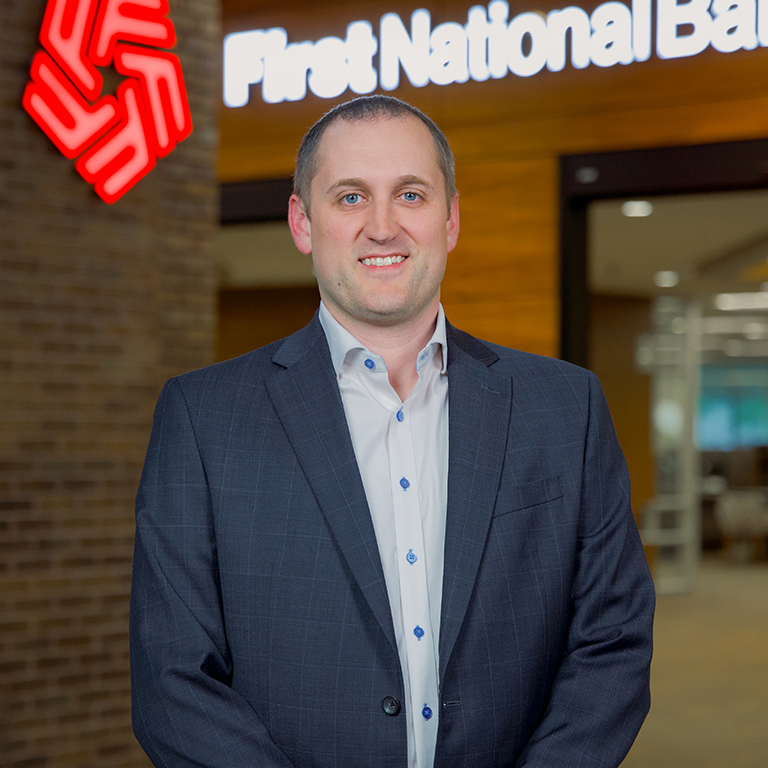
Opening a joint account, buying a house together, and doing estate planning all before getting married?
My friends Jaime and Curtis Taets, a couple from the Twin Cities area, took a unique approach to merging their finances — but that’s what you have to do when entering a second marriage.
The couple recently joined me on an episode of our podcast, Common Cents on the Prairie™, to share their story of blending families and finances.
Check out the recap of our conversation below. And, when you’re ready, you can watch the full episode on YouTube or listen on your favorite streaming app.
Second marriage and money
Adam: The reason why we’re doing this episode is to highlight something that not a lot of people talk about. A lot of people get divorced, and a lot of people get remarried, and the reality is that it’s difficult to not only merge your lives, but to merge your financial lives when you’re getting remarried.
That’s something a lot of couples struggle with. So, we’re going to talk through how you two did it. How did you meet?
Jaime: Playing sand volleyball.
Adam: Like everybody meets, obviously. As you started dating, how quickly did you start talking about money? And how did those conversations go?
Curt: In the very beginning, you know, it’s the gentlemanly thing to pay for the meals. I did more than my fair share. And then, with Jaime being phenomenal, she was like, “No, I’ll get this one. I’ll get this one.”
Doing that on a regular basis, there was certainly a sense that if we’re going to do something, it shouldn’t be my responsibility. It shouldn’t be hers. It’s a joint, shared thing.
So, when we got more serious in our relationship, we had a conversation to open a joint account. On a monthly basis, we both put a set amount in there, and that’s how we paid for everything we did together.
Jaime: Our fun money.
Adam: There are three big things that I pulled from your story that I thought were really interesting, and that was one of them. Actually, all three of these things happened before you got married. What else did you learn through that process of dipping your toe in the water and combining finances for the first time?
Jaime: A divorce can be financially devastating. It changes your retirement plan, when you thought you were going to retire, and just so many things.
I didn’t balance a checkbook, and I didn’t live on a budget. With Curt it was like, “We’re going to budget, and we’re going to talk about where the money goes.” And I’m grateful for that, because there was never shame. It was a very logical conversation.
It started me on this path of understanding that there’s a lot of planning you can do that makes you feel very safe. The joint account was an initial thing and a small thing, but it made me feel secure that we both were okay with talking about money.
And then we bought a house, and we went into a mortgage before we were married. A lot of this budgeting came up because that’s a really big decision, and we have a family of six so it was not a small house.
At first, I was like, “Why are we talking about this level of budgeting?” I’d never done this before. It’s probably because I’m an entrepreneur; I take risks, right? But he was so focused on how much money we had put away to cover if someone got sick, if my business took a turn, if he lost his job.
That’s that safety and security as an entrepreneur that looking back, I can now make the big decisions in my business because he’s given us that steady foundation.
Adam: I think that when a lot of couples have conversations like this, that can create conflict. But it sounds like the two of you really respected each other and the way you approached money.
Jaime: In full transparency, it’s not like all of these conversations were easy right out of the gate. They were hard because it was like, “Well, I enjoyed that,” or “I’d rather put more here.” And so, there was a lot of negotiation and compromise.
Adam: The third thing you did before marriage, which I found to be the most fascinating, was you went through the estate planning process together. Why did you decide to do that?
Jaime: It seems crazy now. It didn’t seem crazy to us when we were doing it.
Curt: Because we’ve already gone through a divorce, and now we’re remarried, we had to close off what we had done before. Everything was left to the other person. So, part of this was, if something happened, we didn’t want to have the house that we were buying together to go in limbo.
We needed to have something in place to make sure the other person was comfortable with that. We went through all of that just to make sure the other was fine in the event that a bus hit one of us.
Jaime: And part of it was that Curt is older than me, so he had more earning years; he came in with more 401(k) retirement plan funds. It was this discussion around, we’re bringing in two kids each. If something happens, we wanted the other person to make sure they could stay in the house.
Then, what we committed to at that point was that every five years, we’ve done a refresh of our estate plan.
Adam: You’re poster children for how estate planning should work, by revisiting it at different stages of life.
Jaime: It wasn’t like, “This is going to be exciting, talking about if you die and if I die.” But what it also did is, instead of being a negative thing, I remember us sitting with a lawyer and Curt saying, “You know, I just want to make sure she’s taken care of if something happens to me.”
And that’s a whole different level of love and commitment, really. So, I share that because people think it’s such a negative thing — but there can be a lot of positives and caring about each other that comes out of that conversation.
That’s really what it’s about. You’ve got to go through the hard stuff because it’s worth it, right? To have that safety and security.
Adam: You’ve gone through an incredible process, and you have such a great lens that you look at this stuff through. First of all, you need to be commended for that.
Then, what advice would you give to someone who maybe has gone through a divorce and is thinking about stepping back into a committed relationship?
Curt: I think the smartest thing we did was opening the joint account. I thought that was a real game-changer for us; it gave me a sense that we’re both in this together.
Jaime: The words that come to mind for me are respect and trust. By doing that simple account, it made us trust each other.
But the other thing that I think is really important is that we had different philosophical and money backgrounds coming in, but we didn’t have to both believe the exact same thing or have the exact same values around money. We were just willing to talk about it.
I think it’s the proactiveness. And there are a lot of partners, like your team, who can help people navigate some of that stuff too.
Being willing to talk about money is a skill we all need in relationships, whether it’s with our kids, our spouse, or our aging parents. It’s the hardest thing, but it is very rewarding when you do it.
If you’re ready to be more proactive with your finances and want a trusted partner to guide you along the way, reach out to our team at First National Wealth Management. We’d be happy to help!
Any comments, insights, or strategies discussed in this article are intended to be general in nature and, therefore, may not be suitable for you and your situation, whatever that may be. Before acting on anything written here, please consult with your attorney, CPA, and/or your financial advisor.





